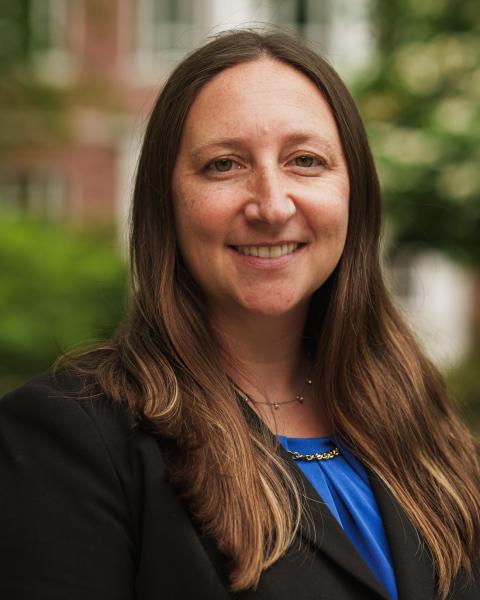Treading Lightly
In 2015, the United States joined 195 other countries in committing to reduce carbon emissions to keep global warming at, or below, 2°C. This collective effort is known as the Paris Agreement, a legally binding international treaty.
Jennifer Andrews, project director for the UNH Sustainability Institute, says that science indicates this is a necessary action to prevent both ecosystem collapse and unnecessary human suffering. And, to achieve this ambitious goal, we all need to pitch in.
“Greenhouse gases, the primary driver of the climate crisis, are emitted by virtually every organization and household in every community across the globe. There is not one policy fiat or emissions source that can achieve the necessary transformation; we need thousands of organizations and communities to be mobilized toward rapid transformation,” she says.
UNH is recognized as a sustainability leader and is one of only eleven higher education institutions in the nation to earn a platinum rating from STARS, the Sustainability Tracking, Assessment & Rating System used by the Association for the Advancement of Sustainability in Higher Education.
To help New Hampshire lower its carbon footprint, UNH began tackling its own footprint more than twenty years ago and has recognized the need to empower individuals and businesses with the tools and training necessary to aid this global effort.
Enter UNH Extension’s Professional Development and Training (PD&T), which offers a wide array of non-credit programs for professionals and lifelong learners.
Andrews and Allison Leach, a program manager for the Sustainability Institute, have teamed up with PD&T to offer a carbon footprinting certificate for anyone who wishes to learn how to conduct an inventory of greenhouse gas emissions and develop an action plan. This program is especially meaningful for small businesses, nonprofits and municipalities that don’t have in-house expertise or extra funds to hire expensive consultants.
Andrews explains that participants don’t need years of training or an advanced degree to dive into this work; at minimum, participants need their energy and utility bills to get started. The process helps identify the most practical, cost-effective steps for making impactful change.
Instructors use UNH’s Sustainability Indicator Management and Analysis Platform (SIMAP), but the concepts taught can be applied to any carbon footprinting tool.
Inventorying emissions and taking steps to reduce them is advantageous for many reasons. Business leaders can identify operational efficiencies, which streamlines processes and saves money. They can better understand and manage risk, remain competitive, satisfy customers and attract employees.
They can also get ahead of the curve, as policy efforts on climate change continue to increase at the state and federal levels (eventually, there could be a price put on carbon, making every ton emitted a business liability).
Since launching in 2021, the program has welcomed professionals from the financial services, engineering, higher education and nonprofit sectors. By collaborating with PD&T, the Sustainability Institute is continuing to share its more than two decades of experience as a leader in this important work.
“UNH has more organizational carbon accounting history and expertise than any other university — so we are well-positioned to recognize the need to train and support organizations in carbon footprinting, and we are excited to help meet it,” Leach says.


